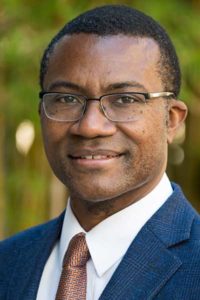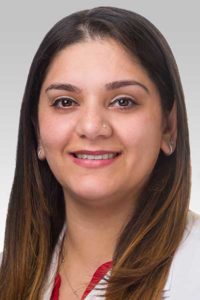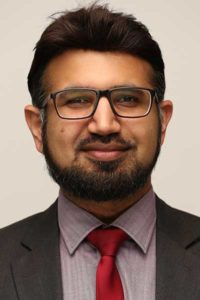
Heart failure (HF) is one of the deadliest complications of diabetes. Long overshadowed by acute cardiovascular events, HF has an annualized mortality rate of nearly 18% in patients with diabetes.
“Heart failure has been a forgotten disorder because the basic and translational science models were created with atherosclerosis in diabetes leading to ischemic heart attacks and strokes,” said Eldrin F. Lewis, MD, MPH, the Simon H. Stertzer, MD, Professor Medicine and Chief of Cardiovascular Medicine at the Stanford University School of Medicine. “But if you look at the real world, people with diabetes develop heart failure and their mortality is horrific.”
Two companion sessions on Sunday, June 5, will review the latest HF research and HF clinical conundrums. New Hope, Old Challenges in Heart Failure—Heart Failure Clinical Trials—What’s New? will begin at 2:15 p.m. CT and New Hope, Old Challenges in Heart Failure—Clinical Conundrums in Heart Failure will follow at 3:15 p.m. CT. Both sessions will be held in Great Hall B at the convention center and both sessions will be livestreamed for virtual meeting attendees.

Sodium-glucose cotransporter-2 (SGLT2) inhibitors, originally developed as glucose-lowering agents, have emerged as one of the most effective classes of agents for HF in patients with or without diabetes. SGLT2 inhibitors join angiotensin-converting enzyme (ACE) inhibitors, angiotensin receptor-neprilysin inhibitors (ARNis), beta blockers, and mineralocorticoid receptor agonists (MRAs) as pillars of HF treatment.
“Now that we have these therapies, the question is how do we get them into the hands of patients?” Dr. Lewis asked. “That’s where digital health can come in, giving opportunities to both providers and patients to escalate therapy and ensure safety to improve outcomes.”
Digital health is one of many approaches to a familiar problem—getting the right HF drug to the right patient at the right time. But who is the right patient?
“Diagnosis remains one of our real-world challenges,” said Patricia Campbell, MD, Consultant Cardiologist/Heart Failure Lead at Southern Health and Social Care Trust, Portadown, Northern Ireland. “Diagnosis and failure of diagnosis remain a global problem.”

Brain natriuretic peptide (BNP) is a cornerstone HF diagnostic, Dr. Campbell continued. Diabetes, hypertension, obesity, renal disease, and other comorbidities can alter BNP and obscure HF diagnosis.
The evolving terminology of HF adds another layer of complication.
“I hope we can redefine the ‘failure’ in heart failure, as the terminology that we use has substantial impact on our patient living with this chronic condition,” said Sadiya Sana Khan, MD, MSc, Assistant Professor of Cardiology and Preventive Medicine at Northwestern University Feinberg School of Medicine. “Rather than just defining the condition by the heart failing, we now have greater precision to diagnose the changes in heart function that lead to symptoms, which allows us to optimize treatment measures and focus on function, not failure. Therapies that target both heart function and diabetes, such as SGLT2 inhibitors, are a win-win, but we have to get them on board.”
Guidelines can help increase prescribing, but drugs only work for patients who take them.

“There is a huge gap between the best treatment that is available and the treatment that is being delivered,” said Shahzeb Khan, MD, MSc, cardiology fellow at Duke University School of Medicine. “The biggest problem we face right now is how to get patients on all the great therapies that have been developed recently.”
Health insurance, whether public or private, may cover SGLT2 inhibitors and other highly effective HF agents. But high deductibles and copays often put those treatments out of reach for patients.
“There’s no simple way to fix access to care and therapy, but if we start talking about it and if we raise awareness in our settings, we can help. This topic, this symposium, can lead to great benefits for the six million people with heart failure in the U.S. alone,” said Dr. Shahzeb Khan.
[sub-post-content]